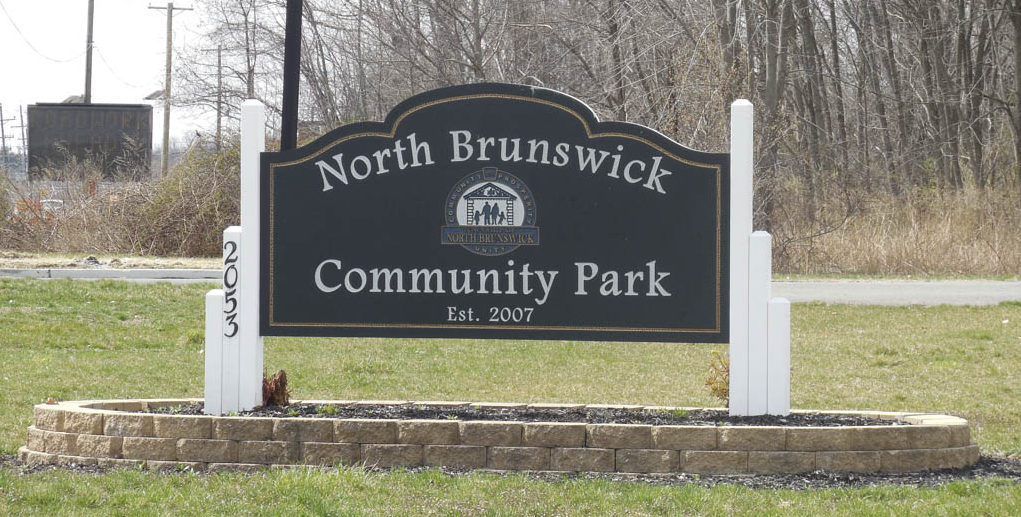By JENNIFER AMATO
Staff Writer
NORTH BRUNSWICK – Pastor David Luckey Jr. described how young people tend to get into fights.
A conversation that begins with trying to be reasonable escalates into a bullying-like situation. When a person realizes there may be no recourse, he or she lashes out, resorting to violence.
He likened this to the existing state of society, where the African American community thinks there is no justice served, or that unjust injuries and fatalities occur quite often. They feel there is no recourse, and therefore violence emanates.
Instead, the pastor of Without Walls Church in North Brunswick said that empathy and accountability need to be followed by some type of consequence, and that peaceful protesting is a viable outlet versus extreme violence. If people see the process working, they won’t take matters into their own hands to try to get justice, he said.
Without that, “You start getting this apprehension or this distrust for authority and that’s a wrong thing to happen for everybody on both sides: the police department can’t do their job properly, the people of the community can’t walk around the streets with the ease of comfort. Long story short, to remove violence, I think there has to be more direct consequences for more obvious injustices and then I think it will restore somewhat of a trust that the process works. A voice will be heard, and I think that’s what Martin Luther King was a strong advocate of,” Luckey said.
Kenneth McCormick, the director of the North Brunswick Police Department, moderated a discussion with Luckey and Bishop Calvin Enlow of the New Destiny Family Worship Center in North Brunswick on Jan. 12, as one of the first endeavors of the newly-formed North Brunswick Human Relations Committee.
Focusing on Dr. Martin Luther King, Jr.’s mission and life’s work, the three discussed race relations, racial tension and how to co-exist with law enforcement.
Enlow said he lived in Philadelphia in an all-black community until age 12, at which time his family moved to Highland Park, a predominantly Jewish neighborhood.
“[King] influenced me in a way to try to understand different cultures, different customs, different traditions, even different lifestyles other than the black community,” Enlow said.
On a broader scale, Luckey said that King influenced the Civil Rights Act of 1964 “by taking the emotions out” of what was taking place in the 1960s.
“Martin Luther King paved the way. It’s not where it was years ago. It’s not where we want it. But it’s workable,” Enlow said.
Enlow said there needs to be more empathy shown by leaders – and the media – when there is a loss of life. He also called for investigations whether or not videos capture an incident.
“We need to calm emotions of people so the facts can prevail,” he said.
This will lead to greater equality, which was King’s lifelong dream.
“Injustice should not be white against black or black against white. It just means a human made a mistake, so let’s first have consequences for that and then let’s figure out how to go forward,” Luckey said. “It’s not black and white – it’s equality for all.”
“Martin Luther King fought for equality. Martin Luther King fought for civil rights. And he did in a peaceful manner because he too did not believe the way to get results is to come out of character,” he added.
Education must be promoted as well to teach today’s youth about a message that has existed for decades since King’s death in 1968.
“A culture is what’s needed – a change, in general, of how we get past skin color,” Luckey said.
That, in essence, can help improve race relations today.
“The police role, I think, is to be accessible to the community and to help educate, to help people understand that we are here to help, we are here to protect and we are here to enforce the law. We’re not here to cater to one group versus another,” Luckey said. “You get good guys on both sides working together against the bad guys, irrespective of color. There’s offenders of every color, protectors of every color.”
He urged people not to stereotype the majority because of the behavior of a few.
Making today’s society relatable locally, Luckey added that he is “really pleased with what takes place in North Brunswick. I think law enforcement does a great job.”
The Human Relations Committee is planning more programs and events for the year, as per an effort by Mayor Francis “Mac” Womack.
“Diversity is not our weakness. It’s our strength,” Enlow said. “This is a tremendous start. It’s going to open doors in the community. … Martin Luther King paved the way. He left us a legacy. He left us with something to follow.”
Luckey added, “We’ve come a long way, but we still have a long way to go.”
To view the discussion, visit www.northbrunswicknj.gov under Videos – Township Videos – 2017.
Contact Jennifer Amato at [email protected].

